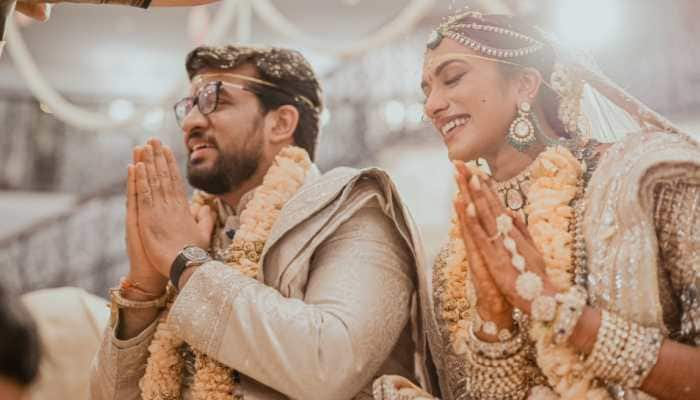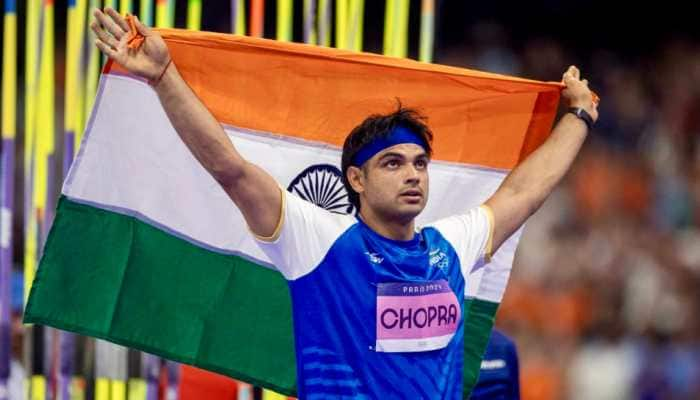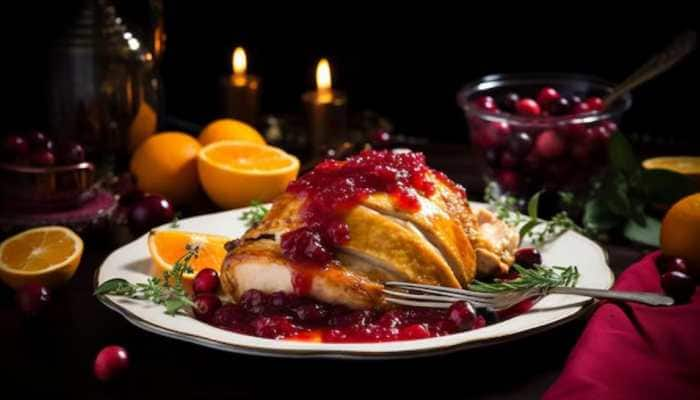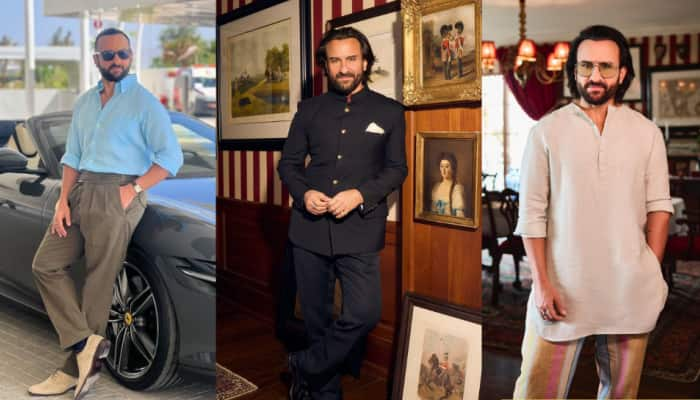In wake of historic OPEC deal, country with world's largest oil reserves struggle to survive
The ongoing political crisis in Venezuela has divided the international community - while 60+ countries back interim President Juan Guaidó and others support Nicolas Maduro who runs the country.
Trending Photos
) Reuters photo
Reuters photo An unprecedented humanitarian catastrophe - Oil wars, a failing economy, the risk of COVID-19 with a collapsed health care system, dictatorship, drug trafficking, terrorism, complex internal politics and the interests of global powers in a South American nation; might seem like the plot of a fictional movie however it is a stark reality in Venezuela.
Venezuelan Interim President Juan Guaidó, spoke about the crisis within a crisis, to Palki Sharma Upadhyay on the global leadership series on WION.
The ongoing political crisis in Venezuela has divided the international community - while 60+ countries back interim President Juan Guaidó and others support Nicolas Maduro who runs the country.
Venezuela has the largest oil reserves in the world and oil revenue accounts for 99% of exports. On being asked about oil prices plunging after OPEC struck a historic deal to reduce production, he said, "Venezuela has enormous potential not only in oil but also in energy. We have the fifth-largest gas reserve in the world, we have significant mineral potential, we have a privileged climate for agribusiness; We are the Latin American country with the greatest potential for agro-industrial growth, even more than Brazil."
He continued, "For us, the tragedy is not the price of oil; The tragedy today for Venezuela is that we went from producing three and a half million barrels a day, to just producing between 500 thousand and 700 barrels a day, a consequence of corruption, of the ineffectiveness of this dictatorship; that's the real tragedy.
"For years we had a Macroeconomic Stabilization Fund precisely to go through these episodes of economic difficulty as a result of our economic dependence on oil, unfortunately, the dictatorship also stole that Stabilization Fund and today it exposes us to this social vulnerability as a result of institutional weakness consequence that Maduro isolated himself from the international concert by not recognizing the legitimate National Assembly, by trying to steal an election, by linking himself with terrorist groups like Hezbollah, such as the ELN, both groups are in the region," he revealed.
“In the future, it remains an important lever (oil) coupled with the great potential that Venezuela has geopolitically because we are in the middle of the American continent, we also have a privileged climate during the year, and it offers enormous potential for companies that want to come to invest in Venezuela, he added.
On being questioned about the role of China in providing financial aid and healthcare supplies to the country and a potential debt trap he said, " Regrettably, our oil industry is now destroyed, limiting our capacities of being able to have healthy trade ties not just in the region, but with the world. For us, once we’ve gone through the dictatorship and the pandemic, the challenge is to be able to have healthy
commercial relations with China, with India and with the world. Unfortunately, today this is not possible because the dictators that usurped the Executive Power in Venezuela have preferred to link themselves with drug trafficking, terrorism and destruction of the Amazon to try to exploit our gold."
He continued, "China, in recent years, has not given financial support to the dictatorship because they don’t have the Parliament’s approval - which I preside, as President in charge. It is recognized by 60 countries of the world and our struggle to recover our democracy.”
How is Venezuela coping with the pandemic? - Interim President Juan Guaidó stated, "We are going through a complex humanitarian emergency that already has 15% to 20% of the population at the risk of death. We have the second-largest migrant flow on the planet - after Syria - A country that is at war. Our health system has collapsed. 60% of our public hospitals do not have piped water. 80% of our employees don't even have soap at the moment. There are only 84 respirators for a population of more than 30 million people. The Venezuelan minimum wage today is $4 a month. An unprecedented humanitarian catastrophe in Venezuela - an oil country that today only has oil, and unfortunately they destroyed our oil industry."
Speaking about his personal experiences with the dictatorship he exclaimed, "In Venezuela in addition to the COVID-19 virus, we live with the virus of the dictatorship that has haunted us for years. I have 16 people from my team kidnapped, imprisoned or tortured. They have persecuted us for years, they have murdered journalists, they have murdered community leaders. The confinement also gives a different perspective of how to live in persecution; my uncle, for example, is being tortured in cells of military counterintelligence; My four previous Heads of Office - one has been kidnapped and three in exile."
He added, "It is particularly difficult for us to be able to respond to our people by facing two viruses simultaneously: one of dictatorship and fascism; and one of COVID-19; but we are very firm, attending the teams that are persecuted today; and attending above all our people with the tools that we have at our disposal. "
"Today the majority of our population - more than 90% according to opinion studies - wants a (political) change. They want to live with dignity" he stated.
"We must always put the citizen first, attend to their needs, and for this reason, we are making every effort to obtain the necessary humanitarian aid - even recognized by the dictatorship at this time.", he mentioned on being asked about the political division affecting the response to the pandemic in the country.
On his party’s claims that the pandemic would give Maduro diplomatic legitimacy, he stated,"Maduro is already unrecoverable to say the least. He has violated human rights, as laid out by the United Nations and the High Commissioner for Human Rights. He is being indicted for terrorism and drug trafficking - it is as if the drug cartels are usurping functions. It is exactly what is happening today in Venezuela. They are using the State power to finance world terrorism and commercialize drug trafficking"
He added, "On the contrary, we have proposed a solution, an alternative, not only to the emergency but also to the situation in Venezuela. We call it the Government of National Emergency, it is a constitutional figure in Venezuela that today is also supported by more than 60 countries and it is a global solution to the emergency, to the crisis within a health crisis, and to be able to lead us again to a democracy that all Venezuelans want."
About the accountability of China for the COVID-19 outbreak, he maintained, " I believe that as a global society, today we all have to take responsibility; not only a country or two, we must be jointly responsible for what is happening. I think that at this moment, as is the fight against climate change, as is the interdependence between nations, we have to be able to prevent something like this in the future; it is evident that we cannot face an emergency like this in the future with the vulnerability that we have today between countries.
In the case of Venezuelans, in the case of Latin America, the current vulnerability of our health systems has to deeply call our attention so that we never go through a situation like this again, but rather prepare for the future, and of course what we want to bequeath to future generations. "
Talking about relations with India he said, "India with its big pharmaceutical companies can even collaborate and help a lot. It is the largest democracy in the world today. Prime Minister Narendra Modi has made important policy expansions on the economy front. Today, India also has an important refiner for Venezuelan oil. In the future, we must continue to strengthen these relations between our countries. "
About India's role in providing life-saving drugs during this critical time, he responded”, I think that some countries that have built capacities, that have enormous potential, also have a duty to humanity today; it is a matter of a win-win situation; we must safeguard the world economy because then a potential recession will affect all economies, not only those that today cannot withstand the pandemic, potential markets, job creation, economic growth in the world will affect even the potential nations"
About a future after the pandemic, he said, " I think the answer can’t be to close borders in the future, for example; surely there will be some who will be tended to close borders or prevent mobility, I think it is the opposite, that we have to open up in access to information, in sharing information more transparently, we must be aware of the global economy necessarily to be able to support the premises in
an interrelated world. Great difficulties also provide great opportunities; I hope this helps us to become aware of the world as a global society. We are going to have to do our part to open borders, we have an opportunity, a turning point in humanity."
Stay informed on all the latest news, real-time breaking news updates, and follow all the important headlines in india news and world News on Zee News.
Live Tv







)
)
)
)
)
)
)
)
)
)
